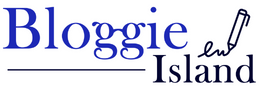Integrating technology to enhance patient care is a top priority in the rapidly changing healthcare industry. Artificial intelligence (AI) has been incorporated into Documentation Assistance and Progress (DAP) notes as one such development. AI-powered DAP notes revolutionize the traditional patient documentation process by automating and enhancing the way critical patient data is captured, analyzed, and utilized.
This article delves into four distinct methods through which AI-powered DAP notes significantly elevate the standard of patient care, marking a transformative leap forward in healthcare efficiency and efficacy.
4 Ways To Enhance Patient Care with AI DAP Notes
1. Efficient Documentation Process
In healthcare, an efficient documentation process stands as a fundamental pillar. Concise AI DAP notes play a pivotal role in expediting this process by automating the transcription and organization of patient data. This recoveries critical time as well as limits the potential for blunders that can happen in manual information passage.
The joining of simulated intelligence innovation into documentation methodology smoothes out the work process for medical services experts, permitting them to devote additional opportunities to coordinate patient consideration and basic independent direction.
AI-powered DAP Notes’ inclusion improves the precision and thoroughness of patient records. These advanced systems meticulously capture pertinent information and structure it appropriately, aiding in the seamless sharing and retrieval of critical data. Moreover, AI algorithms embedded within the DAP notes can intelligently identify and flag inconsistencies or missing data, contributing to a more comprehensive and reliable patient documentation process.
2. Analyzing Data in Real Time
Real-time data analysis is a crucial component of contemporary medicine. It includes the quick handling and understanding of tremendous measures of patient information, working with opportune and informed decision-production by medical care experts. With cutting-edge innovations and hearty logical instruments, medical services suppliers can quickly evaluate a patient’s condition and change therapy designs likewise, enhancing the quality and effectiveness of patient consideration.
Also Read: What is Anxious Attachment?
In the medical services scene, continuous information examination empowers medical services experts to distinguish patterns, peculiarities, and examples in patients’ well-being information immediately. This rapid analysis not only aids in diagnosing medical conditions more accurately but also enhances the ability to predict potential health issues.
By leveraging real-time data analysis, healthcare providers can offer timely interventions and personalized treatment plans, ultimately improving patient outcomes and fostering a proactive approach to healthcare.
3. Personalized Treatment Plans
Personalized treatment plans are a cornerstone of modern healthcare, aiming to tailor medical interventions to the unique needs and conditions of individual patients. Through a thorough analysis of a patient’s historical health data and current status, healthcare providers can design treatment strategies that align with the patient’s specific health profile. This individualized strategy promotes a patient-centered care model, reduces unfavorable effects, and improves therapy effectiveness.
Considerations for tailored treatment plans in healthcare include the patient’s medical history, genetic predispositions, lifestyle selections, and reactions to prior therapies, among other things. By evaluating this comprehensive dataset, healthcare professionals can optimize the selection of medications, dosages, and therapeutic interventions.
This precision in treatment planning aims to provide patients with the most effective and appropriate healthcare, ensuring a higher likelihood of successful outcomes and improved quality of life.
4. Enhanced Care Coordination
Enhanced care coordination stands as a crucial element in the delivery of comprehensive and effective healthcare services. It involves seamless collaboration and communication among various healthcare professionals, ensuring a unified approach to patient care.
Through efficient coordination, healthcare teams can collectively share insights, treatment plans, and relevant information, facilitating a cohesive and well-informed strategy to address the patient’s medical needs.
Also Read: Regaining Control: 5 Steps To Take When Combating Opioid Addiction
Enhanced care coordination encompasses activities such as regular team meetings, information sharing through secure platforms, and the establishment of clear communication channels. These practices permit medical services experts to work as one, giving a comprehensive perspective on the patient’s consideration process.
By encouraging a cooperative climate, care coordination guarantees that medical services suppliers are very much informed about the patient’s headway, empowering them to make ideal acclimations to therapy plans and intercessions. A better quality of care and better persistent results are the outcome of this collective endeavor.
Conclusion
Incorporating AI-powered DAP notes into healthcare systems offers a promising avenue for optimizing patient care. By streamlining the documentation process and providing real-time data analysis, these tools enable you to make informed decisions promptly.
The ability to tailor treatment plans to individual patients enhances the effectiveness of interventions, while improved care coordination ensures a holistic approach to healthcare delivery. Embracing AI-powered DAP notes stands as a testament to the ongoing commitment to enhancing patient outcomes through the fusion of innovative technology and medical practice.










